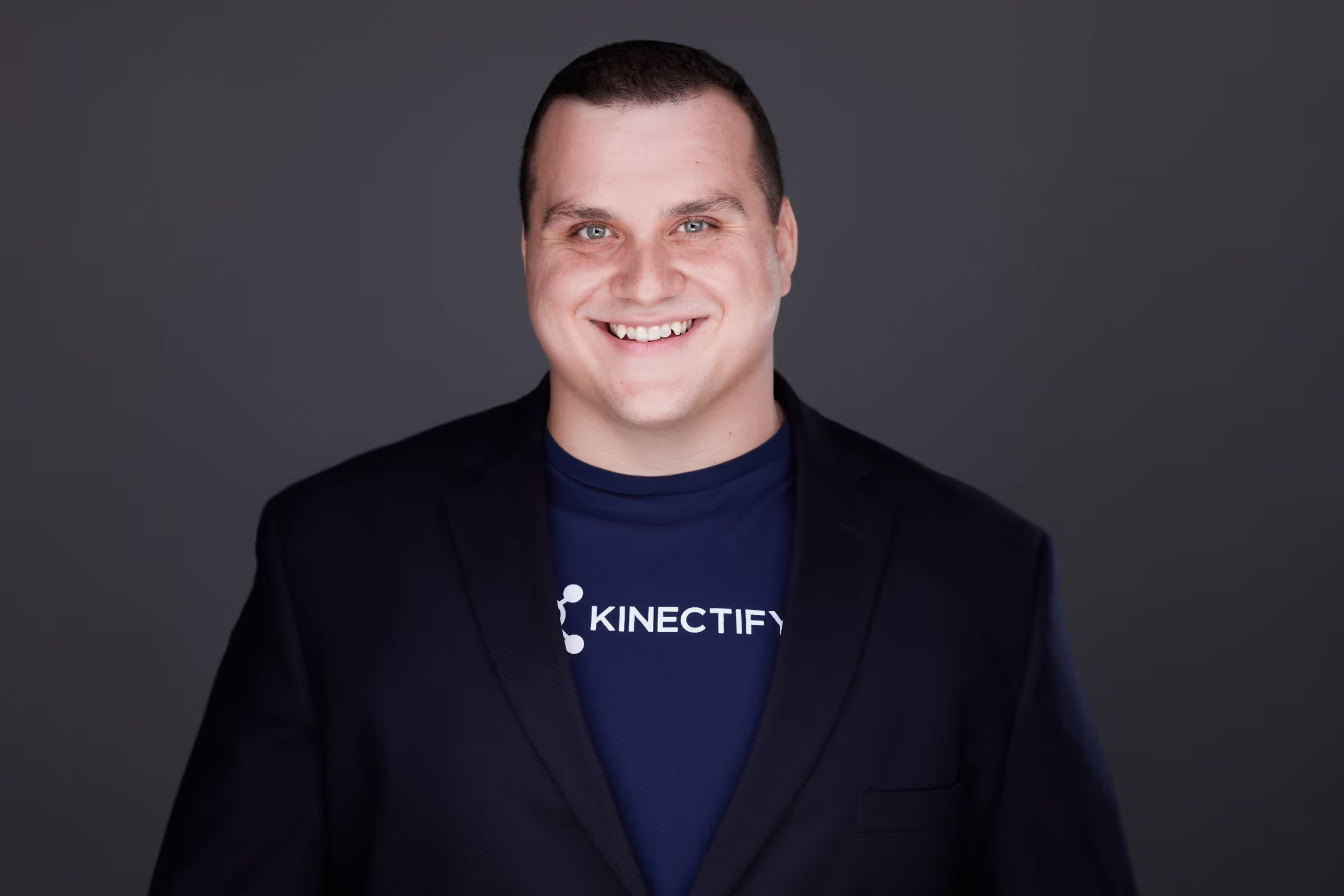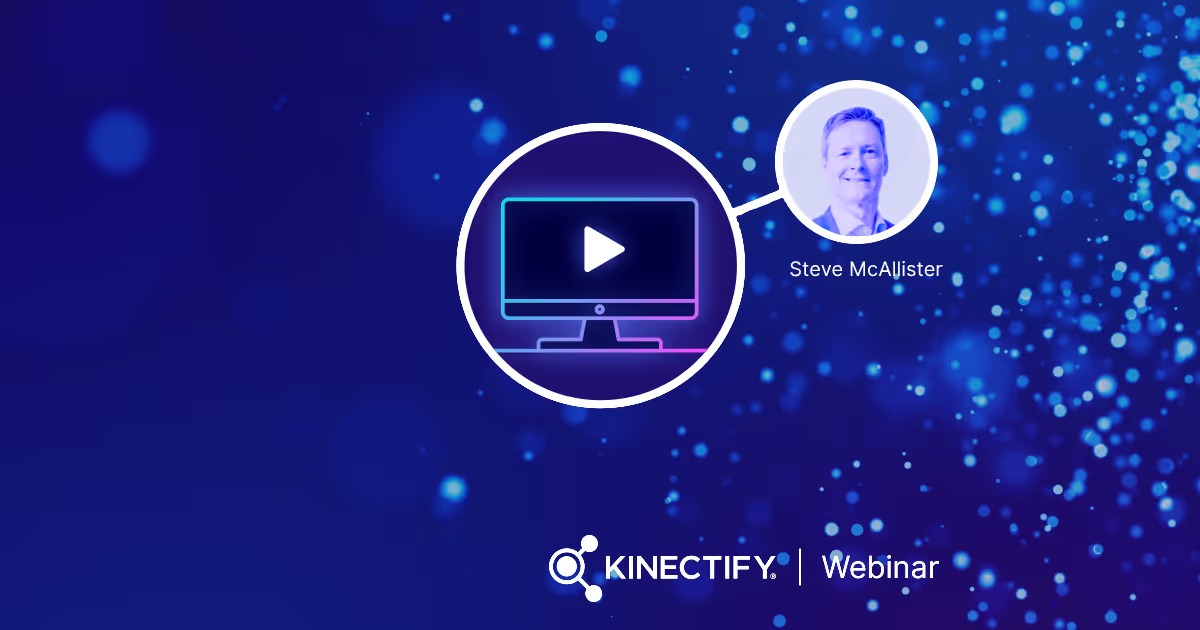What the PCMLTFA Consultation Paper Means for the Canadian Gaming Industry
.avif)
What the PCMLTFA Consultation Paper Means for the Canadian Gaming Industry
.avif)
What the PCMLTFA Consultation Paper Means for the Canadian Gaming Industry
.avif)
What the PCMLTFA Consultation Paper Means for the Canadian Gaming Industry
What the PCMLTFA Consultation Paper Means for the Canadian Gaming Industry
What the PCMLTFA Consultation Paper Means for the Canadian Gaming Industry
.avif)
In episode 9 of Kinectify Conversations, we sit down with Paul Burns, President of the Canadian Gaming Association, to discuss the implications of the PCMLTFA Consultation Paper for the Canadian gaming industry.
The PCMLTFA Consultation Paper is a major piece of proposed legislation that could have a significant impact on the way gambling is regulated in Canada. Burns provides his insights on the key issues raised in the paper, and discusses how the CGA is working to ensure that the Canadian gaming industry remains safe, responsible, and sustainable.
ABOUT KINECTIFY
Kinectify is an AML risk management technology company serving gaming operators both in the US and Canada. Our modern AML platform seamlessly integrates all of the organization's data into a single view and workflow empowering gaming companies to efficiently manage risk across their enterprise. In addition, Kinectify's advisory services enhance gaming operators' capacity with industry experts who can design and test programs, meet compliance deadlines, and even provide outsource services for the day-to-day administration of compliance programs.
To learn more about Kinectify and book a demo, click here.
Transcript
[00:00:00] Sean Topchi: Welcome to Kinectify Conversations. My name is Sean Topchi, and I'm the Director of Business Development at Kinectify. Our mission is to share the experience, expertise, and insights from gaming industry leaders that comes from years of navigating the complexities and impact of compliance. On this episode, I'm joined by special guest…
[00:00:20] Paul Burns: Paul Burns, President and CEO of the Canadian Gaming Association.
[00:00:24] Sean Topchi: Thanks for joining us today, and remember to like and subscribe to the podcast. You can also learn more anytime at kinectify.com. That's K I N E C T I F Y dot com.
Paul Burns, thank you very much for joining us on Kinectify Conversations. I'm really excited to talk to you today about the AML consultation paper out of Canada. But before we get started with that, for those listeners that may not know you yet, why don't you give us a little background on yourself and the Canadian Gaming Association?
[00:01:13] Paul Burns: Thanks for having me. Great to be with you. I've been part of the Canadian Gaming Association since its inception in 2006...with helping found it with my now retired colleague, Bill Rutsey. There was no voice for the Canadian gaming industry. It was all done through government agencies at that point, but there was [such] a growing space of suppliers and operators in the space that we needed to step up and start speaking on behalf of the industry and their employees across the country.
So what we are... as a National Trade Association representing leading operators and suppliers in Canada's gaming, sports betting, eSports lotteries, [and] a full spectrum of companies from land-based to online providers, gaming content and industry and gaming technology, and then [for] companies like Kinectify that provide a great resource in supporting gaming operators across the globe.
And so we're built upon really three pillars - we collaborate, advocate, and educate. And that's [how] we bring the industry together to work on issues of common cause. We advocate to governments and work with governments as partners. Because of the provincial governments having such a strong role in gaming, we see that more as a partnership role.
We do a lot of advocacy at the federal level, and we do a broader public education in terms of what the gaming industry is and help explain what we do in a lot of our spaces around issues such as AML, which has been a very topical one in Canada over the last number of years. So that's who we are.
We have 65 member companies representing a broad spectrum of the gaming industry and it's been a busy couple years in Canada, to say the least. So we've been having a good time doing a lot of great work on behalf of the industry to ensure that there's great opportunities for companies to grow their businesses.
[00:03:05] Sean Topchi: Gosh, that's an understatement on the past two years. It's been quite the whirlwind. But two things you said there that I think are so important are the advocacy and education. Especially as we refer to AML, I feel like the gaming industry and AML is so niche that there may not be so much understanding by the public and by the legislators as much on how we differ from the other industries that fall under the PCMLTFA.
So as we talk about that advocacy and education CGA forms committees and subcommittees, one of those is the AML subcommittee. Would love for you to talk a little bit about that and what the goals of that subcommittee are.
[00:03:44] Paul Burns: Yeah…We began about a year and a half ago with an AML subcommittee.
It was really born out of knowing that there are...The federal proceeds of crime, money laundering and finance terrorist Act has a mandated five-year review and that they're coming... And so we knew this was coming and recognized that there was a lot that has happened with the gaming industry particularly around money laundering in the last number of years, and that the definitions were becoming outdated and understanding. And it's been a challenge for years [working in the] industry with Fintech and the finance department, policy people to get them to understand what the gaming industry is and what it isn't. There was always as people may not be aware in Canada, not everybody has to file reports to FinTech.
If you'd handle say, more than $10,000, it's only designated reporting industries. And so... it's a select group that is recovered under the legislation at the casinos. Were one of 'em most built around the definition of land-based gaming. But those definitions of what's a casino and what's gaming, sports betting isn't included.
Horse racing has been left out for reasons we still don't understand. So there's lots of frustration and also just simply that they also thought we could have the same relationship with the customer like a bank does. And that's not the way the industry works. Writing policies and legislation and such that we're just trying to make you like a bank and that's not what we are.
There's a different customer relationship and, I know Sean, you're more well versed in this because of your background and working in the property level and others on AML issues on a daily basis. But these were sort of fundamental issues we had to tackle with FinTech to understand that we're working to comply here.
We're part of the game and we're definitely anxious to make sure that we're doing what we're do, but understand our ability to working with customers and understanding what we need to do. And then the evolution of that over the last decade has been quite substantial.
And the gaming industry's part in terms of upping our game significantly but also helping FINTRAC understand who we are.
[00:06:07] Sean Topchi: Yeah, absolutely. And with that said, obviously this consultation paper that's come out in the past two or three weeks now... I like the way this is done a little bit more in that not only do they put out all the information of what they're thinking about, but as part of the consultation paper, they pose a lot of questions to the broader industries, but also specifically to the gaming sector.
That starts to allow us to tackle some of these issues. But it's often a complicated answer, and you can't just answer with one or two lines. Frankly, it has to be a collaborative conversation. And this kind of is where somebody like the CGA and other organizations come in is, how do we respond as an in industry? Because I don't think it's just responding to the consultation, which is absolutely necessary, but it seems like...
Get the White Paper
Start growing
Discover how Kinectify can clear the way for you to scale your business.







.avif)
